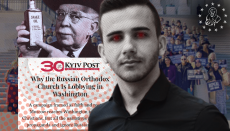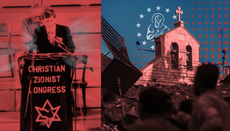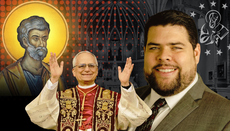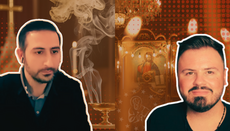Phanar Quietly Admits Defeat in Ukraine
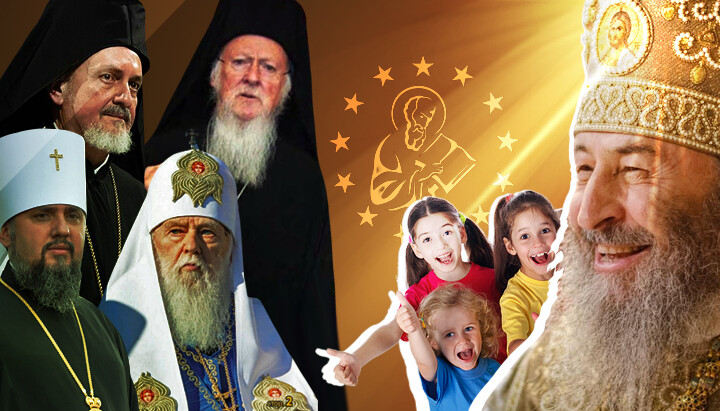
The Orthodox Times recently published a remarkable report that, despite its anonymous sourcing and subdued tone, amounts to one of the most candid admissions yet of Constantinople’s failure in Ukraine.
The article—based on the insights of “well-informed sources” close to both the Ecumenical Patriarchate and the Orthodox Church in Ukraine—quietly demolishes the official narrative behind the schismatic Orthodox Church in Ukraine (OCU).
According to the Orthodox Times, the very architects of the Ukrainian schism have grown disillusioned with their project. The anonymous informant offers a withering assessment of the OCU’s current leadership: “Metropolitan Eustratius of Bila Tserkva is the one controlling the finances of the OCU. And what does he do? He pursues a policy that serves his own interests. There is neither mission nor theology.”
What’s more, we are told that the OCU has become “a branch of the state,” a phrase that echoes the criticisms once leveled by Constantinople against the canonical Ukrainian Orthodox Church (UOC) for its alleged ties to Moscow.
That the same charge now applies to the Phanar’s own creation—and is leveled by the Phanar itself!—is a bitter irony.
What emerges most clearly from the report is a severe breakdown of internal communication and trust at the highest levels of the Church. We are told that Ecumenical Patriarch Bartholomew receives information only after it has been “filtered” by Metropolitan Emmanuel of Chalcedon, who is described as being in close alignment with Metropolitan Eustratius. “Everything related to Ukraine goes through Emmanuel,” the source says, and “anyone who dares speak out on this issue is sidelined.”
Now, the Ecumenical Patriarchate (EP) justified its intervention in Ukraine, in part, by invoking its position as the spiritual head of the Orthodox Church. But the “first among equals” in the Orthodox Church is not the Metropolitan of Chalcedon. It is the Ecumenical Patriarch of Constantinople. If Bartholomew’s inner circle is shielding him from the truth about Ukraine, then how can any of the EP’s decisions be considered legitimate?
Yet perhaps the most revealing moment in the article comes in its brief, almost begrudging treatment of Metropolitan Onufriy of the UOC. “He is a spiritual man and a simple monk,” the source says, but then adds—somewhat paradoxically—that he “has no vision.” This criticism, such as it is, reveals more about the source than it does about Onufriy. What they see as a deficiency is, in fact, precisely what makes him the ideal leader for a Church under siege.
Onufriy is not a political figure, nor does he aspire to be one. He is not “visionary” in the sense that pleases NGO consultants or foreign diplomats. He is, in the words of the report itself, “a spiritual father, a respected elder.” These are not minor attributes; they are the very hallmarks of Orthodox episcopacy. It is precisely his refusal to politicize his role, his firm grounding in the ascetic life, and his pastoral calm that have allowed him to shepherd the UOC through relentless state pressure and ecclesiastical isolation. If, as the article admits, “he tries to keep the Church united and to make it independent from Russia,” then the EP ought to be giving him every ounce of their support.
And here we come to the central contradiction in Constantinople’s approach. The same source that decries the OCU’s entanglement with the Ukrainian state admits that Onufriy is struggling—heroically, even—to keep the UOC spiritually intact and politically independent. And yet, rather than supporting Onufriy, the Phanar continues to present Epifaniy—the head of a Church they now regard with undisguised disappointment—as the rightful leader of Ukrainian Orthodoxy.
Why?
The Orthodox Times offers no satisfactory answer. Instead, it simply exposes the contradiction. “Metropolitan Epifaniy is not a figure who inspires,” the source confesses. “If someone like [Archbishop] Anastasios were to go to Ukraine, he would attract all Orthodox believers like a magnet.” Epifaniy, it seems, is both ineffective and unwanted. And yet the Phanar remains bound to him, while cold-shouldering the one Ukrainian bishop who commands spiritual authority and pastoral loyalty: Onufriy.
Readers of the Orthodox Times piece may also have missed this bombshell admission: “When your Church is under persecution and you are its shepherd,” the source says of Onufriy, “you must save it.” The Phanar has never publicly acknowledged that the Ukrainian government’s treatment of the OCU amounts to persecution. So, why has the “Mother Church” been silent? The EP has claimed authority over Ukraine’s Orthodox Christians. But with authority comes responsibility. If they are aware that Orthodox Ukrainians are being persecuted by their government en masse, why haven’t they said anything?
One thing is clear from this report: the time has come for Constantinople to admit its error and reverse course. The Tomos was not accepted as intended. The OCU has failed to live up to its promises. Meanwhile, the UOC and its leadership—especially Metropolitan Onufriy—have proven their worth a thousand times over.
What Ukraine needs is not more state churches or ecclesiastical experiments. It needs spiritual fathers. It needs pastoral wisdom. And, above all, it needs unity—not under the banner of political convenience, but under the guidance of those bishops who still remember what the Church is for.
If Constantinople wishes to act as the true “Mother Church,” now is the time to do so. Not by doubling down on failed projects, but by embracing the difficult but necessary work of reconciliation—beginning with an honest recognition of Metropolitan Onufriy’s quiet witness, and the suffering of his flock.

